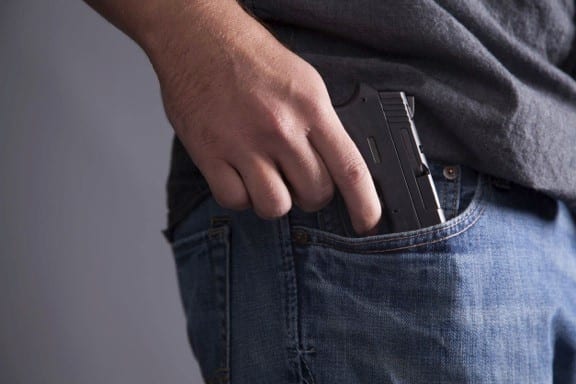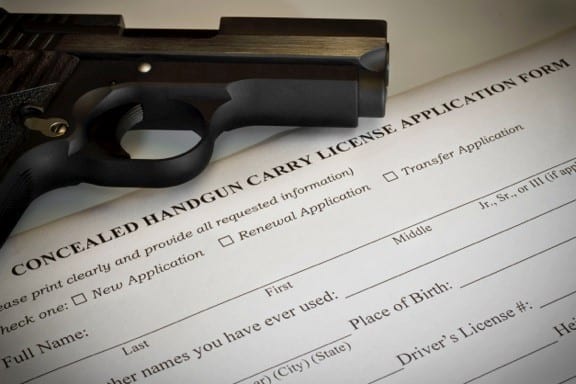Recently, we’ve had to hear about a lot of incidents where police officers confronted a citizen and ended up shooting that individual dead. In many of these cases, the police claim that they shot because the individual was armed – even though that has often proven not to be the truth.
And then there are situations where it’s not clear who is telling the truth and what really happened. Such is the case with the death of Keith Lamont Scott, and all gun owners in North Carolina need to pay attention to this incident. Why? Read on.
Here’s what we know about the situation:
Members of the Charlotte Police Department shot and killed Keith Lamont Scott on September 20. Scott’s family said that he was waiting for his son’s elementary school bus in the afternoon.
The police had been looking for someone with an outstanding warrant when they saw Scott. They claimed that he had a pistol at the time, and when police asked him to drop the gun, Scott did not respond. Being armed was enough for the police to shoot Keith Scott.
But Scott’s family has argued that he did not even have a gun at the scene of his death. And videos from bodycam footage also fail to show a gun, though officers noted the presence of the gun on the video.
As law enforcement and family members have gone back and forth about whether or not Scott really did have a gun, many media sources have pointed out that a gun would still fail to justify his killing. After all, even if Keith Scott was carrying a gun, it was completely legal for him to be armed.
That’s right. North Carolina’s open carry laws allow for pistols to be carried openly. You do not even need to have a concealed carry permit unless you are carrying a concealed firearm.
How Weapon Rights in North Carolina Work

Even if you are not in a situation like Scott’s, you still may be faced with a predicament in which your right to carry a gun is questioned and it makes you look suspicious to law enforcement.
Open and Concealed Carry in North Carolina. Once again, North Carolina allows for open carry, including in a motor vehicle.
If you want to carry a concealed weapon in our state (a weapon that is hidden and under the individual’s control), you need to apply for a concealed carry license. And unless you are concealing the weapon on your own premises, you will need to have that license on your person as well.
These permits are only issued to permanent residents of North Carolina, and you must have lived in the state for 30 days before applying for a license. To get a license, you must also meet the following requirements:
- You are a U.S. citizen over the age of 21
- You do not have a physical or mental disability that prevents you from safely carrying a handgun
- You have completed a firearms safety and training course.
- You are not ineligible to own a handgun under federal or state law
- You have not been discharged from the military on anything other than honorable conditions
- You have not been convicted of a violent misdemeanor
- You are not free on bond or awaiting trial, appeal, or sentencing for criminal offenses that would disqualify you from owning a handgun
- You have not been convicted of a DUI/DWI in the past three years
You will have to turn in an application, a full set of fingerprints, a certificate noting your completion of the firearms safety course, and any records you have regarding your mental health. Your permit will last for five years from the date that it is issued.

If you are caught carrying a weapon when you are not allowed (or carrying a weapon where you are not allowed), you could be brought up on misdemeanor or felony charges. Multiple convictions will result in harsher charges and longer sentences.
Guns can be viewed as threatening to many, and law enforcement may attempt to take action upon seeing a weapon on your person, regardless of whether you are legally allowed to carry it.
Wrongfully accused of weapons crimes? Give us a call today.
About the Author:
Jan Elliott Pritchett is Managing Partner at the Law Firm of Schlosser & Pritchett and one of North Carolina’s top rated criminal defense attorneys. With a practice dedicated 100% to litigation, Mr. Pritchett protects the legal rights of clients who have been charged in federal and state criminal matters, as well as DUI/DWi, motor vehicle accidents, personal injury, and traffic violations. In practice since 1995, Mr. Pritchett has earned a reputation as a highly talented and fearless lawyer, being listed among the state’s “Legal Elite” and recognized as one of the Top 100 DWI Lawyers in North Carolina by the National Advocacy of DUI Defense. He currently serves as the Co-Chairman of the North Carolina State Board of Legal Specialization, Criminal Law Specialty, and Vice-Chairman of the North Carolina Bar Association, Criminal Justice Section.








